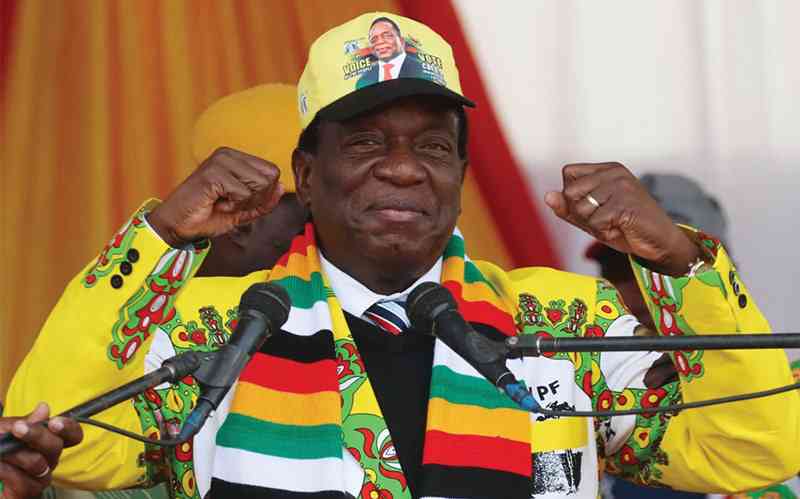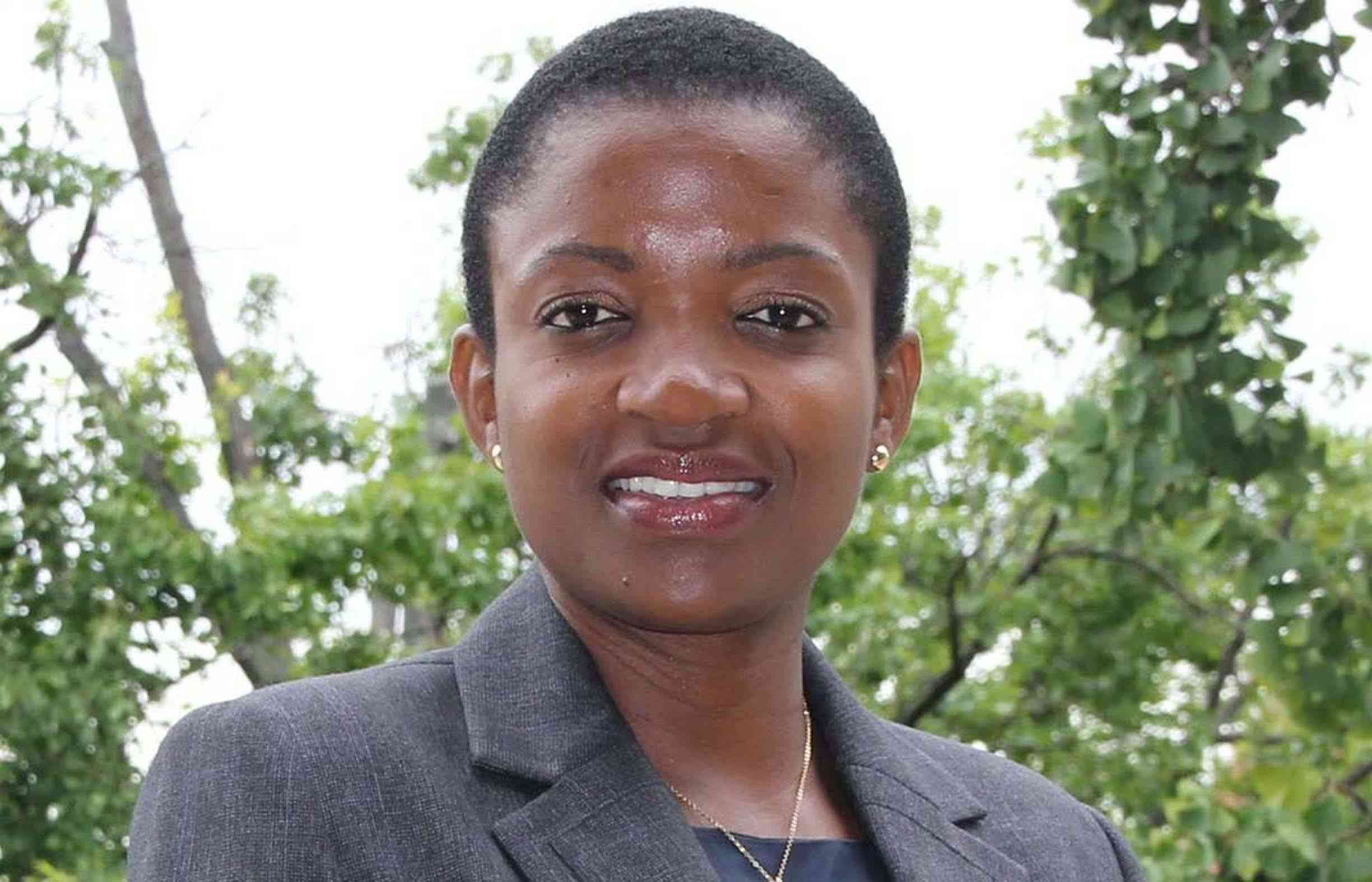
AN amendment of Zimbabwe’s supreme law to allow for third-termism will constitute a constitutional coup and provide political powder keg for an ignominious end to President Emmerson Mnangagwa’s reign.
My argument follows consistent dangerous calls by leader-follower groups within Zimbabwe’s ruling party for Mnangagwa to contest for a third term in 2028. Mnangagwa won his first term in 2018 which expires in 2023. He is then eligible to stand for a second and last constitutional term in the 2023 election.
Section 91 of the Zimbabwe Constitution is clear that the President must serve a maximum of two terms, whether continuous or not. Two terms refer to three or more years of service hence his term from 2017 to 2018 when he deposed Robert Mugabe in a military coup is discounted.
If Mnangagwa wins the general election in 2023 his term will, therefore, constitutionally end in 2028.
Reader, despite this constitutional clarity, the ruling Zanu PF women’s league Midlands provincial chairperson, Tsitsi Zhou, made the latest call for third-termism on December 20, 2022.
Previously the then acting deputy secretary for Zanu PF youth league, Tendai Chirau, Vice-President Constantino Chiwenga (though not to be entirely politically trusted for his political chicanery) and Zanu PF secretary for administration Obert Mpofu, have also publicly advocated for the amendment of the national Constitution to allow Mnangagwa to have more than two terms and rule forever contrary to the Constitution.
Mnangagwa has echoed similar sentiments after Mpofu’s utterances when he said in agreement that ‘we [Zanu PF] can change the laws … there is nothing that we want that cannot be done because we command two-thirds majority in Parliament’.
It is clear that some elements within Zanu PF harbour thoughts to amend or misinterpret the Constitution to effect another coup.
- Mavhunga puts DeMbare into Chibuku quarterfinals
- Bulls to charge into Zimbabwe gold stocks
- Ndiraya concerned as goals dry up
- Letters: How solar power is transforming African farms
Keep Reading
However, this is not new because many Presidents across Africa have amended their countries’ constitutions to eliminate the two-term presidential limit. These include Africa’s big men such as Paul Kagame of Rwanda (2015); Paul Biya of Cameroon (2008); Yoweri Museveni of Uganda (2005); Djibouti’s Ismail Omar Guelleh (2010); Congo Republic’s Denis Sassou Nguesso (2015); Burundi’s Pierre Nkurunziza (2015); Guinea’s Alpha Conde (2020) and Egypt’s Abdel-Fattah el-Sissi (2019) to name a few out of more than 20. However, the results have not been unilinear. Others failed dramatically to change the term limits like Zambia’s Fredrick Chiluba (2001), Malawi’s Bakili Muluzi (2002), Nigeria’s Olusegun Obasanjo (2006) and Burkina Faso’s Blaise Compaoré (2014). So, this means Mnangagwa cannot view this dream as fait accompli.
For Mnangagwa to change the Constitution, he faces three hurdles. First, the constitutional Bill to amend the presidential term limit must be passed by two-thirds majority of the membership of the National Assembly and the Senate. Second, unlike with other Bills, it must be submitted to a national referendum within three months of approval by Parliament and be approved by the majority of the general voters. Nevertheless, across Africa, referendums have not been a deterrent to authoritarian leaders to change constitutions as evident in Rwanda and Egypt where the yes vote was 98% in each country.
Even if Mnangagwa wins the referendum, there is a third exceptional legal albatross to authoritarian consolidation in Zimbabwe. Section 328(7) of the national Constitution clearly stipulates that the person who held the office of the President before the amendment cannot benefit from the extension of term limits. So even if Mnangagwa manages to change the Constitution, he will remain barred by section 328(7) from extending his rule beyond two terms. It is his successor who can legally benefit from that chicanery.
So, the only route he can succeed is through a constitutional coup. After all, Zanu PF merely sees the Constitution as a piece of paper with no significance whatsoever on its big political decisions.
We have many episodes where the Constitution has been crucified on the altar of authoritarian politics. Mnangagwa will then have to live with what will be a legal sham of the 21st century with total delegitimising effects. Such a reign will not be stable especially for someone who already faces legal challenges over his legitimacy from his party member, Sybeth Musengezi.
I now move to five possible political ramifications that immediately come to mind. First, Zanu PF with the military dimension added is not united under Mnangagwa’s presidency.
These ructions have been contained through blood and iron but are likely to manifest in the event of third-termism. Zanu PF leaders acknowledged that there were internal forces trying to remove Mnangagwa and replace him with Chiwenga which overtly manifested in July 2020.
Former politburo members Cleveria Chizema and the late Tendai Savanhu were expelled from the party on August 19, 2020 for denouncing Mnangagwa. Former Zanu PF youth league member, Tinashe Mathusa, was also expelled for printing and distributing anti-Mnangagwa flyers and pro-Chiwenga placards. Some posters were written “our generals liberate us from Mnangagwa”. These sentiments are still simmering in the party corridors and will be reignited by third-termism.
Even if Mnangagwa is able to use coercion and patronage to get Members of Parliament to vote for the amendment. Outside Parliament, Zanu PF is predominantly characterised by leader-follower groups that have emerged along the Mnangagwa faction, the Chiwenga faction, the G40 once symbolised by Mugabe and the Gamatox faction once attributed to Joice Mujuru.
Within this matrix, cohesion is weak as evidenced during the December 2020 district co-ordinating committee elections characterised by fierce factional competition to gain local positions. How to marshal these leader-follower groups which are waiting for their “turn to eat” to vote for the amendment to extend one faction’s rule will not be a walk in the park.
The only reason other factions might support the amendment is if Mnangagwa agrees to step down and not directly benefit from the amendment as per the dictates of the law but solely for their benefit. I am certain some Zanu PF factions agree on the need for a one-party State but they certainly do not agree on a model that will not allow for alternating leadership especially in the post-Mugabe era.
Second, the former liberation movements in southern Africa are not likely to be persuaded by the third-termism gospel. Some comrades in South West Africa People’s Organisation in Namibia, African National Congress in South Africa, Frelimo in Mozambique and Chama Cha Mapinduzu in Tanzania whisper disdain at Zanu PF’s failure to allow for leadership renewal from within. They do not want Zanu PF to go through what they call regime change but they want leaders within Zanu PF to come and go as is happening in these former liberation movements. Nevertheless, southern African leaders might not be vocal in admonishing an incumbent for a constitutional coup. After all this will be a softer coup compared to the military coup in 2017.
In addition, the African Union has been sheepish when incumbents carry out these constitutional coups.
This does not mean Mnangagwa will get away with it on a silver platter. Beneath the surface, regional solidarity to Mnangagwa and Zanu PF in regional and international platforms on the re-engagement policy will be weakened on the backdrop of a constitutional coup.
Third, it is too authoritarian an idea to sell to the Western world which Zanu PF seeks to re-engage. Naked authoritarian reversals symptomatic of the cold war big man politics are likely to cause backlash. Even China, the so called all weather friend to Zanu PF, might not buy this political move not for its authoritarian nature but for purely strategic reasons because their real point man in Harare is arguably Chiwenga.
Fourth, this move will rile some sleeping democrats at home and abroad, possibly rekindle a new revolutionary spirit and generate national and international momentum that will unsettle Zanu PF. This can lead to resistance from the public, capital, civil society and opposition parties as happened in 2000 when antagonistic classes made unusual alliances towards stopping Zanu PF’s excesses. Elsewhere, attempts to serve more than two terms against the constitution have met fierce resistance. In Burkina Faso, Compaoré faced protests and was forced out of power and sent into exile.
Fifth, even if Mnangagwa succeeds with this democratic reversal against all the resistance this does not look like a sustainable political move especially in a context where there is likely to be some pockets of resistance from within the military dimension. Such dissent within the state in a fragile party-state can lead to another military coup. Guinea’s Alpha Conde managed to change the presidential term limit in 2020 but this left an unstable state and within a year he had been removed in a military coup. Even a failed coup is too ghastly to contemplate in fragile Zimbabwe as happened to Pierre Nkurunziza of Burundi in 2015 as a response to changing the presidential term limit.
In the end, this ill-thought third-termism gospel will destabilise Zanu PF, exacerbate tension in the country, seal the country as a pariah state in the region, trigger another cycle of violence and human rights violations as a response to public resistance, leave the nation more fractured, negatively affect the economy, undermine peace and social cohesion and without doubt set the stage for Mnangagwa’s ignominious end. Reader, one cannot hop from one coup to another that is from a military coup to a constitutional coup and hope to smoothly survive.
- Phillan Zamchiya holds a Doctor of Philosophy degree in international development from the University of Oxford. pres1zamchiya@gmail.com






